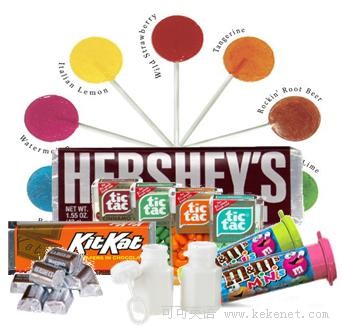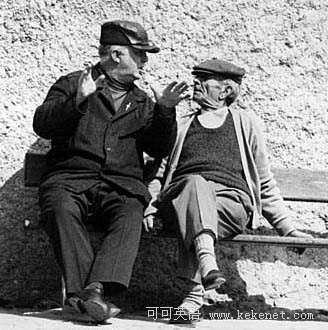(单词翻译:单击)
当你有重要事要打断别人的谈话或工作,最好先礼貌地问句:May I have a word with you? (我可以和你谈一会吗?)。虽然是a word,但不是只说一个字而已,而是一段很简短的对话,或可以说:May I have a quick word with you? / May I have a word in your ear? 通常有这样的要求,谈话内容可能比较私人或秘密,或者也可以用A word if you don't mind.(只是一句话,如你不介意)。
对话
A: Julie, may I have a word with you, please?
B: Sorry, I'm a bit tied up at the moment. Can we talk later?
A: You said that earlier and I've been waiting all afternoon. I only need 5 minutes to go over this.
B: , please take a seat.
甲:茱莉,我可否和你谈一会吗?
乙:对不起,我现在很忙,可否迟些再谈?
甲:你较早前已这样说过,而我已等了整个下午,我只需要5分钟就足够了。
乙:好吧,请坐。
May I have a word with you?即‘我可否和你谈谈吗?’A word两字可不可以改作words? 改作words,意思就完全不同了。To have a word with somebody. 是‘和某人谈谈’,To have words with somebody. 则是‘和某人吵架’,例如:He had words with his wife last night. (他昨晚和妻子吵架)。
又请看以下两句有什么分别:He had white hair、He had white hairs。 按hair泛指毛发,是不可数名词,例如:I find her shoulder-length hair very beautiful.(我觉得她及肩的头发很美丽)。但是,一根毛发却是可数名词(countable noun),例如成语to hang by a hair即‘系于一发’,His life is hanging by a hair. 等于‘他生死悬于一发’。He had white hair.是说‘他满头白发’,He had white hairs.则是说‘他头上有些白发’。
Who is your favorite singer?
相信每个人心里都有一些最喜欢的东西。最喜欢的英文就是favorite。最喜欢的食物(favorite food)、最喜欢的颜色(favorite color)、最喜欢的歌手(favorite singer)。那么你最喜欢的歌手是谁?Who is your favorite singer?如果你没有特别偏爱的歌手,可回答:I don't have a particular favorite.(我没有特别的偏爱)。相反你有一个非常喜欢的歌手,可以用firm favorite,例如:Michael Jackson is my firm favorite.(米高积逊是我非常喜爱的歌手。) Hot favorite是指非常流行 / 受欢迎的东西,例如:This song is a hot favorite in Hong Kong.(这首歌在香港非常流行)。
对话
A:What were your hobbies at university?
B:Well, I liked to do so many things so I didn't really have a regular hobby. But I was a rock singer and I still perform occasionally.
A:Who is your favorite singer?
B:I'm a fan of the Beatles and Rod Stewart.
甲:你在大学时期有什么嗜好?
乙:哦,当时我喜爱做太多事情了,并没有特定的嗜好。但我以前是一个摇滚乐手,现在偶然也会表演一下呢。
甲:谁是你最喜爱的歌手?
乙:我是披头四和洛史都华的歌迷。
要说所喜欢的人、物等,英文多会用favorite一字,作形容词(adjective)解作‘特别喜爱的’,作名词(noun)则是指‘特别喜爱的人、物’,例如:(1) War and Peace is my favorite novel.(《战争与和平》是我很喜欢的一本小说)。(2) Coca-Cola is a firm favorite with my son.(可口可乐是我儿子百喝不厌的饮料)。
最喜欢或最不喜欢,就是most / least favorite,例如:Madonna is my most / least favorite singer.(玛丹娜是我最喜欢 / 最不喜欢的歌星)。
父母、教师等偏爱的孩子,也可用favorite 一字来说,例如:(1)Peggy has always been her mother's favorite.(佩琪向来都是她母亲偏爱的孩子)。(2) It is not advisable for a teacher to have favorites in the class.(教师不宜偏爱班中几个学生)。偏爱或徇私的行为,即favoritism,例如:(1)The chemistry teacher was accused of showing favoritism to certain students.(化学老师被投诉,说他偏爱某些学生)。
竞赛之中获看好的选手、动物等,一般都称为favorite,例如:(1) He bet $2,000 on the favorite to win the horse race. (他把二千元赌注,押在马赛中最多人看好的那匹马上)。(2) He was a hot favorite to win the election.(这次选举之中,他很有机会获选)。
Do you know Candy?
今天和大家讨论用Do you know?的问句,Do you know?就是问别人:‘你知不知道?你懂不懂?’如果问你懂不懂煮饭,可以说:Do you know how to cook? 你知不知道那条路?Do you know the way? 或者要问你认不认识一个叫肯蒂的女生,可以说:Do you know Candy? 如果你不认识她,可回答:I don't know her.,如果你跟她很熟,可以说:I know her very well.,如果只是泛泛之交,可以说:I'm acquainted with her.。
对话
A: Do you know Candy?
B: Candy? Does she have curly blond hair and a really beautiful face?
A: Yes, that's her.
B: Yes, I know her very well. She was my girl friend during my first year in university.
A: Really? Candy told me that she's only 19 and she's your boss' daughter.
B: Oh, Candy Cooper! My mistake. I thought you meant Candy Rose.
甲:你认不认识肯蒂?
乙:肯蒂?是否那个金色卷发的漂亮女子?
甲:对,就是她。
乙:是,我跟她很熟络,她是我大学一年级时的女友。
甲:真的吗?肯蒂告诉我她只有19岁,是你老板的女儿。
乙:噢,肯蒂吉谱!我搞错了,我以为你指的是肯蒂罗丝。
某乙听某甲谈到一位金发美女肯蒂,以为是自己的旧女友说:I know her very well.(我和她很熟络)。假如某甲带笑问道:In the biblical sense? 读者知道是什么意思吗? Biblical即‘《圣经》(Bible)的’,例如biblical language是 ‘《圣经》的语言’。In the biblical sense?等于说‘是否《圣经》里那个意思?’。
在《圣经》和其它古籍里,know字有‘和...有性关系’的意思。读《御用圣经.路加福音》第一章,你就会看到天使对圣母玛利亚说:You will conceive in your womb and bring forth a son, and shall call his name Jesus(你会怀孕,诞下麟儿,取命为耶稣)。玛利亚回答说:How can this be, since I do not know a man?(这怎么可能呢?我没有跟男人亲热过)。今天,英语国家的人说跟某某有性关系,有时就会用开玩笑口吻说:I know him / her in the biblical sense。
留意I know her和I know of her很不同。I know her是 ‘我认识她’,I know of her. 则是 ‘我知道她这个人’或‘我听说过好这个人’。
说和某人交朋友,英文是to make friends with somebody,那复数形式的friends不可改为friend。为什么和一个人交朋友,都要用复数形式?原因很简单:friends 除了指对方,还包括你自己。交朋友是至少两个人之间的事。I should like to make friends with you. 即 ‘我想和你交朋友’。
Could you tell me the way to the shopping mall?
朋友们伙人去逛街,通常都会去百货公司(Department Store),或者购物商场(Shopping Mall),两者有什么分别呢?Department Store是独立的商店,里面有不同的部门(departments),如电器部、化妆品部、服装部等等,而Shopping Mall是一个大的地方,里面有不同的商店、餐厅、游乐设施及开放空间,所以要问怎样去购物商场,可以说:Where is the shopping mall?(购物商场在哪里?)、Could you tell me the way to the shopping mall? 、 Could you tell me how to get to the shopping mall?(可以告诉我怎样去购物商场吗?)或Could you give me directions to the shopping mall?(可以告诉我去购物商场的方向吗?)。
对话
A: Excuse me. Could you tell me the way to the shopping mall?
B: Certainly. Go straight down this street until you reach the corner, and then turn right. Keep walking until you see the McDonald's and then you go inside and then go out the backdoor, turn left and cross the road and it's right there.
A: How long will it take?
B: I think about 30 minutes.
甲:不好意思,可以告诉我怎样去购物商场吗?
乙:当然可以。沿路向前走直到转角处,然后右转。一直走到麦当劳,进去然后从后门走出,再左转,过马路就到了。
甲:要走多久?
乙:我想大约30分钟。
人家向你问路,假如距离太远,你可以告诉他:It's far from here. / It's a good distance.(离这里很远)、You've got a long way to go.(你还要走很远的路)、It's not within walking distance.(离这里太远了,不宜步行)。既然路远,最好搭车去:Take bus No. 1, and ask the bus conductor where to get off.(搭一号公车去吧,可以问司机哪儿下车)、You'd better take a taxi(最好搭出租车去)。
假如顺路,你不妨说:I'm going there myself.(或It's on my route. / I'm walking that way.)。I'll lead you the way.(或I'll walk you there.)(我正要去那里,就给你带路吧)。
要给人明确的道路指引,则要看实际环境,不能有一套固定说法。但有些基本句法可以参考:(1) Follow your nose(或Go straight on)until you get to a post office.(向前一直走到邮局)。(2) Turn left / right at the corner and then just follow your nose.(在转角处向左 / 右转,然后直行)。(3) Take the first / second turning to the right / left.(在第一 / 二个转弯处向右 / 左转)。(4) The first turning is Second Street.(前面第一条横的街道就是第二街)。
有时,全程很难一次说清楚。你可以教对方先走一段路,然后再问人,例如:Turn around and go back till you get to Second Street, and then ask again.(你要回头走,走到第二街再问别人)。
Don't let me down.
以前教过大家I'm counting on you. 和I'm depending on you.(我全靠你),都是在有求于人时非常用得着的恭维话,今天多教一句:Don't let me down.(不要让我失望),别人听到你这么说可能会更加为你尽力去办。Let down是‘令人失望’,例如朋友问你How was the movie?(那出电影如何呢?),如果说:It was a big let down. 就是说‘它太令人失望’的意思。
对话
A: How's tomorrow's business presentation going?
B: Our preparation work is almost done. We'll have a rehearsal tonight after dinner.
A: Well, I'll look forward to hearing some good results. Don't let me down.
B: I'll try my best to clinch the deal.
甲:明天的业务发表会怎样?
乙:筹备工作已差不多完成,我们在今晚晚饭后会进行彩排。
甲:好的,我期待听到好消息,不要令我失望。
乙:我会尽力去取得合同。
为了宣传公司的产品、服务,公司职员往往要去其它机构或公开场所示范、讲解等, 这英文叫做presentation,例如:The fund house made a presentation of the new investment funds they were launching.(基金公司举行讲座,介绍新创办的投资基金)。
现在,某乙要为公司争取合同,示范、讲解当然要准备周详。他老板说:Don't let me down.(别使我失望)。Let down 除了解作‘辜负(某人)期望’,还可解作‘使丢脸’或‘破坏(声誉)’,例如:Your misconduct has let down the name of the bank.(你违反职业操守,破坏了银行的声誉)。
Let someone down的反义词是live up to someone's expectations.(不负某人所望)。 某乙的老板其实可以说:I'm sure you'll live up to my expectations.(我相信你会不负我所望)。这有鼓励的意思,比忧心忡忡的一句Don't let me down. 似乎好一点。Don't let me down. 会加重某乙精神上的压力,对他示范、讲解的表现未必有好处。
所以,你是某乙的同事,发觉他赴会前精神紧张,就应该设法消除他的焦虑,例如你可以说:You don't need to worry. I'm sure everything will go well as you're well prepared. You'll make a big hit.(你不必担心。你准备得那么好,相信一切都会很顺利。你会赢得观众赞赏)。Make a hit. 是‘博得好评’、‘大获成功’的意思。
How are you feeling?
问候别人除了用简单的How are you?之外,也可说:How are you feeling?(你觉得怎样呢?)这个feeling(感觉)除了指生理上的感觉,也可指心理上的感觉,譬如探病时或看见朋友心情不好的时候,可以问候他说:How are you feeling?。如果说:You hurt my feelings. 就是‘你伤害我的情感,令我难受’,觉得忧郁不欢,可以说:I'm feeling blue,觉得蛮有趣或有点奇怪,可以说:I'm feeling funny,或者你感觉很好,就是I'm feeling good.。
对话
A:Tasha, you still look very pale. How are you feeling?
B:Better. My fever has broken, but I still feel quite weak.
A:I hope you get well soon.
B:I hope so too.
A:Get back to work.
甲:德思嘉,你看来面色仍然很苍白,你觉得怎样?
乙:好了一点,已经退烧,但我仍然觉得有点虚弱。
甲:希望你快些康复。
乙:我也希望。
甲:返回工作岗位吧。
你病了,人家问你觉得怎样,怎样回答呢?假如你只是有点不舒服,可以说:I don't feel very well. / I don't feel quite right. / I feel a bit under the weather.(我感到有点不舒服)、I'm not feeling myself.(我感到不像自己)、I feel a bit funny.(我感到有点古怪)。Funny一般解作‘有趣的’,但‘有毛病’口语往往称为funny,例如:There is something funny about the computer; I can't move the cursor to where I want.(计算机有些古怪;我没法把光标移到我要的地方)。Under the weather则是成语,但为什么‘在天气下’等于‘不舒服’,至今没有人能够解释。
假如你感到很不舒服,则可以说:I feel terrible / lousy / rotten / awful.(我感到糟透了)、I feel like hell.(我感到像在地狱那样)、I'm (as) sick as a dog.(我病得像狗一样)。Lousy本义是‘多虱的’,rotten则是‘腐烂的’,但在口语中两字都可解作‘糟透了’,例如:Lousy / Rotten weather, isn't it?(天气劣极了,你说是吗?)(As) Sick as a dog. 也是成语,但狗为什么似乎病得特别厉害,恐怕也没有人知道。
要说明感到怎样的不舒适,说法就和疾病一样多,难以枚举。最常见的一些情况则是I feel feverish(我感到发烧)/ chilly(浑身寒冷)/ hot and cold(阵冷阵热)/ dizzy(晕眩)/ sick(作呕)、I have a stomachache.(我胃痛 / 腹痛)/ a splitting headache(头痛欲裂)/ a backache(背痛)等。
That's not necessary.
除了用No之外另一句较婉转拒绝别人的常用句子是:”That’s not necessary.”(这不需要)。当你想拒绝一些不太需要的商业服务,可以说:”That’s not necessary.”表示你不需要,假如别人坚持替你做,而你也无所谓的话可说:”That’s not necessary but if you do, it would be nice.”(这并不是必须的,但如你真的要做,也是不错)。 除了That’s not necessary. 外,也可用Please don’t bother. (不要打扰)或You don’t have to. / You don’t need to. / That’s no need. 都是不需要的意思。
对话
A: I'll give you a call after I arrive in San Francisco.
B: That's not necessary. Long distance charges are expensive. Just send me an email.
A: I'm afraid I won’t have my PC set up that soon.
B: Come on, you can find internet bars and cafes all over San Francisco.
A: That’s true.
甲:我到达旧金山后会给你电话。
乙:这不必了,长途电话费很贵,给我电子邮件便可。
甲:恐怕我来不及安装好计算机。
乙:拜托,旧金山到处都可找到网络咖啡店。
甲:对。
叫人家不必做一件事,除了说:It is not necessary (for you) to do that,你当然还可以用名词need字:There is no need (for you) to do that。用need做动词则怎样说呢? Need做动词,用法比较特别。首先,它可以和普通动词一样有字尾变化,例如: You need. / He needs to do that.(你/他必须这样做)、You don’t . / He doesn’t need to do that. (你/他不必这样做)、Do you / Does he need to do that?(你/他要这样做吗?)
但在否定或疑问句里,need字有时会做辅助动词(auxiliary verb)用,和must、should等差不多,例如You / He need not do that. (=You don’t. / He doesn’t need to do that.)、Need you / he do that? (=Do you / Does he need to do that?) 这两句虽然是说现在的事,但need和he连用也不必加s。
说过去,You did not need to do that. 是说‘你不必那样做’,做了没有未见说明,need是主要动词;You need not have done that. 也是说‘你不必那样做’,但你做了,need是辅助动词。
还有一个字是必须谈谈的:necessarily。这是个副词(adverb),和形容词(adjective) necessary 同源而形似,但意思不同,解作‘必然’,常用于否定句,not necessarily即‘未必’,例如:(1) “He’ll lose.” “Not necessarily.” ( ‘他会输。’ ‘未必。’) (2) Learned people do not necessarily prosper.(有学问未必就会发)。
Here comes Johnny now.
现代人茶余饭后最爱聚在一起说是非,很奇怪的是每当说到某人是非时,某人就总会在附近出现,中文有句话:‘说曹操,曹操到’,英文是Speak of the devil。换着主角不是曹操而是Johnny,英文可以说:Here comes Johnny now.(钱宁他正朝这边过来),或者说:Johnny is coming now。(钱宁现正过来)如果有些麻烦人或者麻烦事正过来,可以用Here comes trouble.(烦恼正来了)。
对话
A:I can't work with Johnny anymore. He always changes his mind and doesn't produce results.
B:Calm down, Kate. A job is a job and after all he is our boss.
A:So what? I can always quit my job and study more. Johnny is really a big.....
B:Shhhh..... Here comes Johnny now.
A:Hi!
甲:我不能再和钱宁一起工作,他常常三心两意,又不能干。
乙:冷静点,凯伊。工作是工作,他毕竟是我们的老板。
甲:那又如何?我可以随时辞职去读书,钱宁真是个......
乙:嘘……钱宁正朝这边过来。
甲:嗨!
‘谁人背后无人说?’在背后说人家的不是,英文叫to speak ill of somebody behind his back,这behind one's back(背面)和to one's face(当面)相对,例如:He calls me a good-for-nothing behind my back, but never to my face(他背面说我一无是处,却从来不会当面跟我这样说)。
背后讲人坏话,英文还有一个颇有趣的说法:backbite,直译是‘在背后咬’。When you hear your friend being backbitten, what would you do?即‘听见有人说你朋友的坏话,你会怎么办?’Backbite这种行为,叫做backbiting,而从事backbiting的人自然是backbiter,例如:We don't want a backbiter in our office.(我们办公室不要搬弄是非者)。
凯伊批评老板经常改变主意,这英文可以说是He is always changing his mind。留意这个always的用法:‘be(包括is, were等be的变体)+ always + ing动词’,多用来表示烦厌。请比较以下两句:(1) He always complains to me.(他总是向我诉苦)。(2) He is always complaining to me.(他整天啰啰唆唆的向我诉苦)。第一句没有不耐烦含义,和第二句不同。
凯伊刚要叫老板做 ‘大XX’,老板就来了。 ‘一说曹操,曹操就到’的英文说法是Speak(或Talk)of the devil, and he will(或is sure to)appear.(一说魔鬼,魔鬼就现身),往往略作Speak(或Talk)of the devil。 
I see.
用英语与别人沟通,最害怕的是鸡同鸭讲,所以想表示自己明白别人意思时,可以说:I understand.(我明白了),或用更通俗的说法:I see,都是‘我了解,我明白’的意思。除此之外,也可以用I see what you mean. / I get it. / I get the picture. / I get you. 都是相同的意思。
对话
A: Darrell, how could you let Nigel sell all his shares and leave the company? You told me he would be your business partner for life.
B: It’s a long story. The long and the short of it is I’m in love with Annie.
A: I see, but Annie is Nigel’s girlfriend. That’s so wrong of you.
B: That’s why Nigel and I parted ways. If loving her is wrong, I don’t want to be right.
甲:达内尔,你怎么让奈哲尔出售所有股份而离开公司?你说过他会是你的终身生意伙伴。
乙:说来话长,整个故事是因为我正和安妮谈恋爱。
甲:我明白了,但安妮是奈哲尔的女朋友,你这样是不对的。
乙:这正是我和奈哲尔拆伙的原因,假如爱她是错的,我也不想做对。
要表示明白人家的意思,英文除了说:I see.,还有不少其它说法。 首先,你可以用be(包括is、were等be的变体with somebody来说‘明白某人的话’,例如:(1) Are you with me?(你明白我的意思吗?) (2) I’m afraid I’m not with you. Could you explain again?(对不起,我不明白,可以再解释一次吗?)I’m with you. 即‘我明白了’。
Get也可解作‘明白’,例如I get it.(我明白了),I get you.(我明白你的意思)等。有时你会听见人家说:Don’t get me wrong,那是叫人 ‘不要误解我的意思’,例如:Don’t get me wrong. I say she’s beautiful, but that doesn’t mean I’m in love with her.(请不要误会,我说她美丽,不等于爱上了她)。留意解作‘明白’的get不可用被动语态 (passive voice)。
I see / take your point. 或 Point taken则多是用来说‘明白并接受人家的观点’,例如:I see your point. Our plan must be changed.(我明白你的看法。我们必须改变计划)。
此外还有I hear what you’re saying. 一语,也是说:‘我明白你的意思’,但一般有‘我不同意’含义,例如:I hear what you’re saying, but things are not as simple as that.(我明白你的意思,但事情不是那么简单)。Understood、I know (what you mean)等,当然也是 ‘我明白’的意思.



